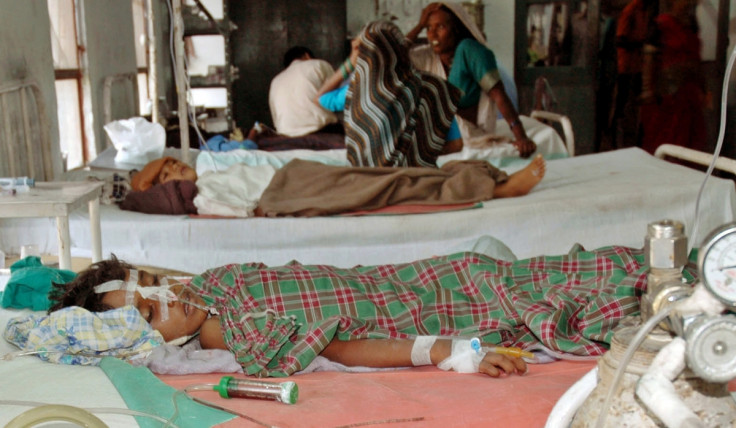As Toll Crosses 550 India Gears Up For War Against Encephalitis

The Indian government has launched a major campaign against Japanese encephalitis which claimed the lives of 550 people across the country this year.
India's Health and Family Welfare Minister Dr Harsh Vardhan said that his priority would be to ensure 100% immunisation against the mosquito-borne virus. Surveillance, early diagnosis, control measures and vaccine coverage are some of the steps that are planned to be enforced.
The Ministry will also seek help from the Centre for Disease Control and Prevention, Atlanta to deal with the annual outbreak.
Many of the deaths have occurred since the onset of the monsoon season. Experts fear the monsoon may make the virus more active.
Health experts say 70 million children nationwide are at risk.
A total number of 104 people have died in Uttar Pradesh, while in Bihar the toll stood at 162. In West Bengal, around 117 people have died of Japanese Encephalitis (JE) and Acute Encephalitis Syndrome (AES) infections this year.
In the north-eastern state of Assam, 165 people have died from encephalitis with more than 300 infected with the virus, according to official reports. The chief minister Tarun Gogoi held an emergency meet, directing officials to set up an intensive care unit at each district hospital for the treatment of emergency cases.
While AES accounted for 60% of the cases covering 24 districts this year, JE was responsible for 40% of the cases in mainly lower Assam districts.
A total of 309 children have been infected in UP state, according to health administration sources.
Eighteen per cent children infected with the virus died in UP in 2012, lower than the 37.2% who have lost their lives to the disease so far in 2014.
The state governments have directed health officials to procure laboratory testing kits for quick diagnosis of cases and also to carry out intensive fogging in affected and nearby areas.
While there is an indigenous vaccine developed in the country against JE last year, victims also die from other forms of the disease, including AES, causes of which are not known.
The requirement for the vaccine is immense as the birth cohort in the affected 171 districts is around 4m annually, requiring about 10m doses for a comprehensive coverage.
Uttar Pradesh reports 500-600 JE deaths every year. The World Health Organisation put the JE toll at over 1,000 in 2013.
The disease causes brain inflammation and can result in brain damage. Symptoms include headaches, drowsiness, seizures and fever.
Japanese Encephalitis was first reported in 1955 in Tamil Nadu. The virus has spread to over 171 districts in 19 states since then.
© Copyright IBTimes 2024. All rights reserved.





